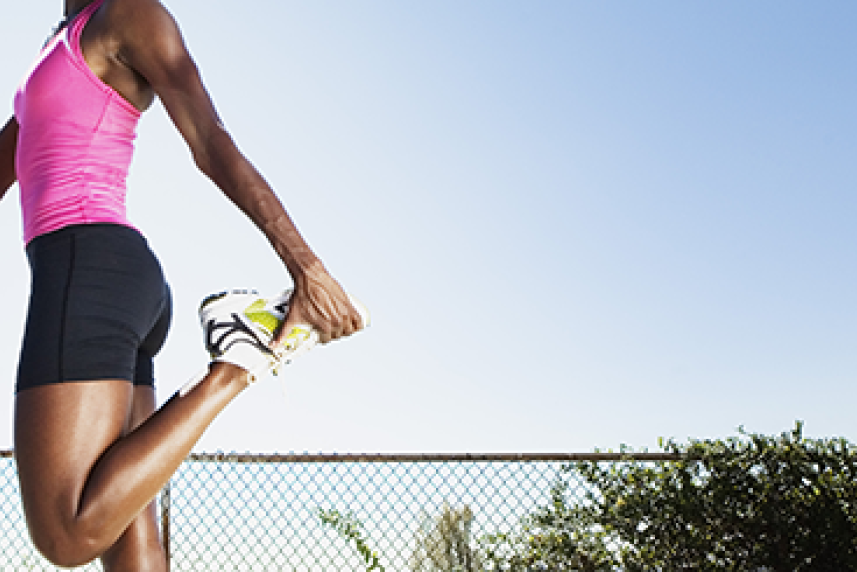4 workout mistakes to avoid
It's time to shape up your habits.

Whether you're a fitness pro or relatively new to exercising, we could all use pointers to make our workouts safer and more effective. To help de-bug your next workout, we talked to Los Angeles-based fitness instructor Desirée Bartlett, CPT, for her biggest "workout no-nos." Keep them in mind the next time you hit the track, gym, group class, or your living room floor and save yourself trouble later down the line.
Comparison: Remember that you're working out for yourself. Try not to compare yourself to the folks around you. "It is human nature to look around the room. However, the challenge is to create a stronger you, not to feel bad by looking at the leaner or stronger person, or feel superior by comparing yourself to a deconditioned person," Bartlett says. When you get to the gym, put your workout blinders on and focus on yourself. Practice mindfulness to narrow your focus. Start with your breath. Notice how and when you breathe harder, and you'll find that everyone else in the gym melts away. (Or you could always try looking at the television above the elliptical…) Try these confidence-boosting yoga moves that help you build a healthy relationship with your body.
Stretching: "Flexibility training is an integral component of fitness," Bartlett says. "Warm up, work out and then stretch for at least 10 minutes [afterwards]," Bartlett says. These are great for beginners.
Goals: A fit and healthy body isn't built in a day. "Waking up and doing two hours of cardio to burn off what you are justifying eating is not realistic and does not set you up for success. Let exercise be fun, and not a punishment," Bartlett says. Fitness and weight loss are part of a lifestyle, and adopting small daily habits instead of huge overhauls will help you succeed down the line.
Shoes: What you wear to work out, especially what you wear on your feet, matters. The proper footwear will protect your joints and muscles from injury with padding, while old shoes with worn-out lining leave you vulnerable to pains. "Shoes have a shelf life. Generally about a year and half after purchase shoes will start to break down. Treat yourself to some new kicks, especially if you use them daily," Bartlett says.


